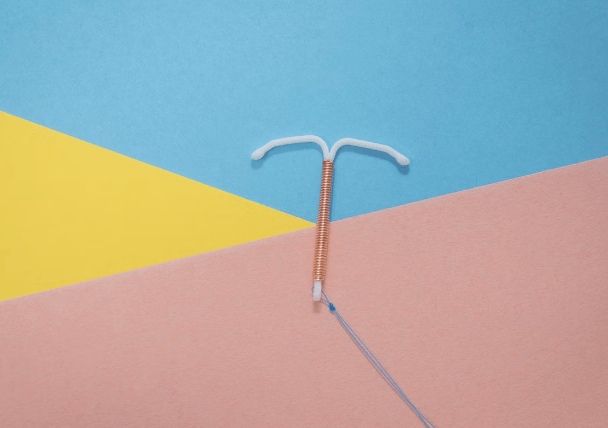An Intrauterine Device is a contraceptive device that is small and T-shaped, placed inside a woman’s uterus to prevent pregnancy. It’s a popular choice due to its long-term effect, typically providing contraception for up to five or ten years. But amidst its popularity, questions arise about its effectiveness and safety. Is IUD safe and effective as claimed? Let’s delve into the truth behind these assertions, starting by discussing their safety.
Are Intrauterine Devices (IUDs) Safe?
According to a new analysis of 90,000 women using IUDs, they are safe. Researchers found that less than 1% of these women developed complications from these devices. IUDs are far safer than other forms of birth control, such as pills, patches, or injections. In addition, they are also less likely to experience side effects such as headaches, nausea, and depression that can come with hormonal contraception.
The device is placed directly into the uterus so no hormones enter a woman’s body. It minimises any risks associated with hormone-based birth control methods, such as altered menstrual cycles, weight gain, or mood swings.
What Are IUDs? And Their Types
An Intrauterine Device (IUD) is a small contraceptive device, often T-shaped, that is inserted into a woman’s uterus. Designed to prevent pregnancy, IUDs are a form of long-term, reversible birth control that lasts up to five to ten years.
There are two primary types of IUDs: Copper IUDs and Hormonal IUDs.
Copper IUDs
Copper IUDs release a small amount of copper into the uterus, which produces an inflammatory reaction that is toxic to sperm, thus preventing pregnancy. Copper IUDs have an effectivity of up to 10 years.
Hormonal IUDs
Hormonal IUDs, conversely, release progestin (a form of the hormone progesterone) into the uterus. It thickens the cervical mucus to hinder sperm from reaching or fertilising an egg and thins the uterine lining, which could potentially prevent implantation.
Effectiveness: How Well Do Copper and Hormonal IUDs Work?
Copper and Hormonal IUDs have proven to be highly effective in preventing pregnancy.
Effectiveness of Copper IUDs
Copper IUDs have an effectiveness rate exceeding 99%, they offer long-term protection for up to a decade. Their non-hormonal mechanism, which creates an inhospitable environment for sperm, ensures near-perfect protection against unintended pregnancies without the potential hormonal side effects.
Effectiveness of Hormonal IUDs
Hormonal IUDs also boast a remarkable effectiveness rate of over 99%. The release of progestin not only thickens the cervical mucus to inhibit sperm movement but also thins the uterine lining, potentially preventing the implantation of any fertilised egg.
What Are the Risks Associated with IUDs?
Like any contraception, IUDs are associated with potential risks and complications, albeit rare. The most common risks include expulsion, where the IUD falls out of the uterus, and perforation, where the IUD punctures the uterine wall. Both complications occur most often during insertion and are relatively rare.
Other potential side effects include heavier and longer periods, especially with copper IUDs, and hormonal side effects such as headaches, acne, breast tenderness, and mood changes with hormonal IUDs. Additionally, there’s a small risk of pelvic infection within 20 days of insertion, but it’s important to note that IUDs do not increase the overall risk of pelvic inflammatory disease.
In the unlikely event of pregnancy, while using an IUD, there’s a higher risk of ectopic pregnancy, a serious, life-threatening condition where a fertilised egg implants outside the uterus.
What Are the Pros and Cons?
Pros of Intrauterine Device
- Long-term effectiveness: Copper and Hormonal IUDs provide long-term protection against pregnancy, with effective rates above 99%.
- Reversible: Once the IUD is removed, fertility returns to normal quickly.
- Hormone-free option: Copper IUDs are an excellent choice for those who want to avoid hormones.
- Minimal maintenance: Unlike pills or patches, IUDs require minimal maintenance once inserted.
- Cost-effective: The upfront cost of an IUD can be high, but spread over the years of use, it becomes a cost-effective method of contraception.
Cons of Intrauterine Device
- Does not protect against STDs: IUDs do not provide any protection against sexually transmitted diseases.
- Potential side effects: IUDs can cause side effects like heavier and longer periods (Copper IUDs) and hormonal side effects such as headaches, acne, breast tenderness, and mood changes (Hormonal IUDs).
- Risk of complications: Though rare, complications like expulsion and perforation can occur.
- Possible ectopic pregnancy: In the rare event of pregnancy while using an IUD, there’s a higher risk of ectopic pregnancy, a serious condition.
- Initial cost: The upfront cost of an IUD can be expensive, although it becomes cost-effective over time.
What’s the Bottom Line on the Effectiveness and Safety of IUDs?
In conclusion, IUDs stand as a viable, secure and effective birth control option, with copper and hormonal IUDs offering over 99% protection against unintended pregnancies. While they do come with potential risks and side effects, these instances are relatively rare, and the benefits often outweigh the drawbacks for many individuals.
However, it is crucial to remember that the suitability of a contraceptive is highly individual, and what works best for one person may not be ideal for another. Therefore, consulting with a healthcare provider or doctor about your specific needs and circumstances is indispensable when considering an IUD. This professional advice will help you to make an informed decision about whether an IUD is the right choice for you and, if so, which type of IUD best suits your needs.


